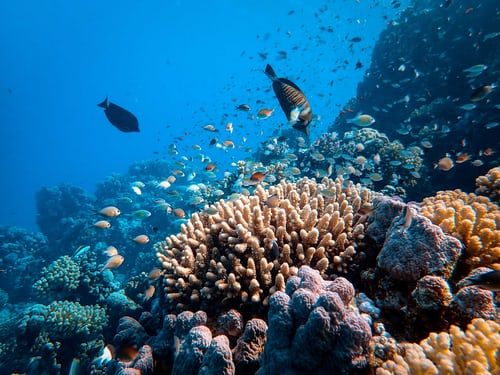Researchers observing the Great Barrier Reef witnessed the annual coral spawn overnight Tuesday off the coast of Cairns, Queensland. The event lasts for two or three days, leaving the World Heritage Site dazzling with colours.
Also read: Explained: Why the Great Barrier Reef is a victim of climate change
A team from Reef Teach, a tourism and educational research center, of marine biologists, divers, students and photographers dived to the bottom of the ocean to capture footage of the annual spawning. This video will help scientists to monitor this year’s coral crop. It will help them monitor the health of the Barrier Reef.
“Nothing makes people happier than new life — and coral spawning is the world’s biggest proof of that,” Australian marine biologist Gareth Phillips, rom research center Reef Teach, said in statement via Queensland Tourism and Events.
Also read: Deforestation in Brazil’s Amazon surges 22% to reach 15-year high
He further described the conditions as ‘magical’.
“I’ve seen the corals all go off at once, but this time there seemed to be different species spawning in waves, one after the other. The conditions were magical with the water like glass and beautiful light coming from the moon,” he said.
“Once we found a ripe coral, we watched as it took about 30 seconds for each colony to complete its spawning. It was the ultimate treasure hunt … it was so exciting that we even grabbed the skipper and got him in the water.”
Also read: Can world’s climate target and India’s development coexist?
The Great Barrier Reef is a network of 2,500 reefs covering 348,000 square kilometers (134,000 square miles). It has been suffering coral bleaching caused by unusually warm ocean temperatures in 2016, 2017 and 2020. The bleaching damaged two-thirds of the coral.
About four months ago, the Great Barrier Reef evaded the list of endangered world heritage site by UNESCO.
Releasing a statement, Australia’s Environment Minister Sussan Ley had thanked the delegates for recognising Australia’s commitment to protecting the Great Barrier Reef.
In June, the United Nations’ cultural agency recommended to downgrade World Heritage status of the Reef due to its dramatic coral decline, largely due to the impacts of climate change and poor water quality.







